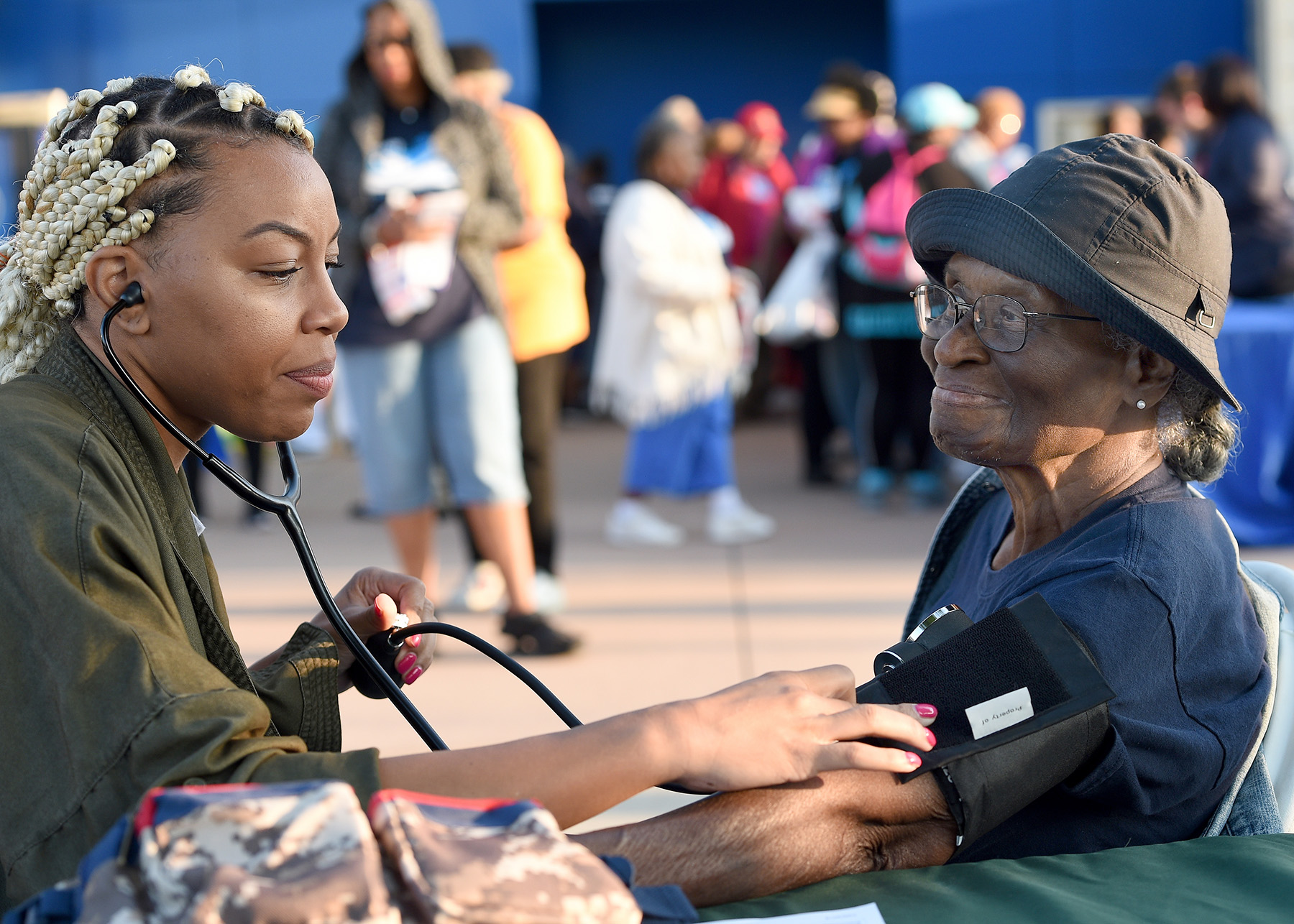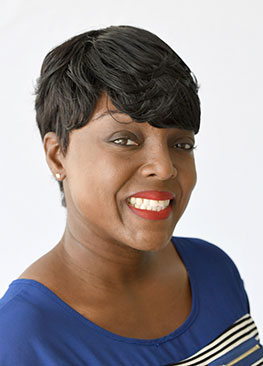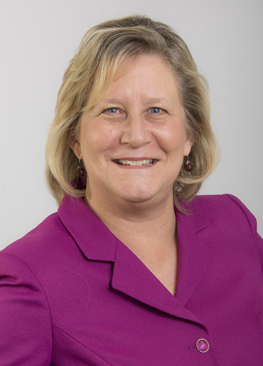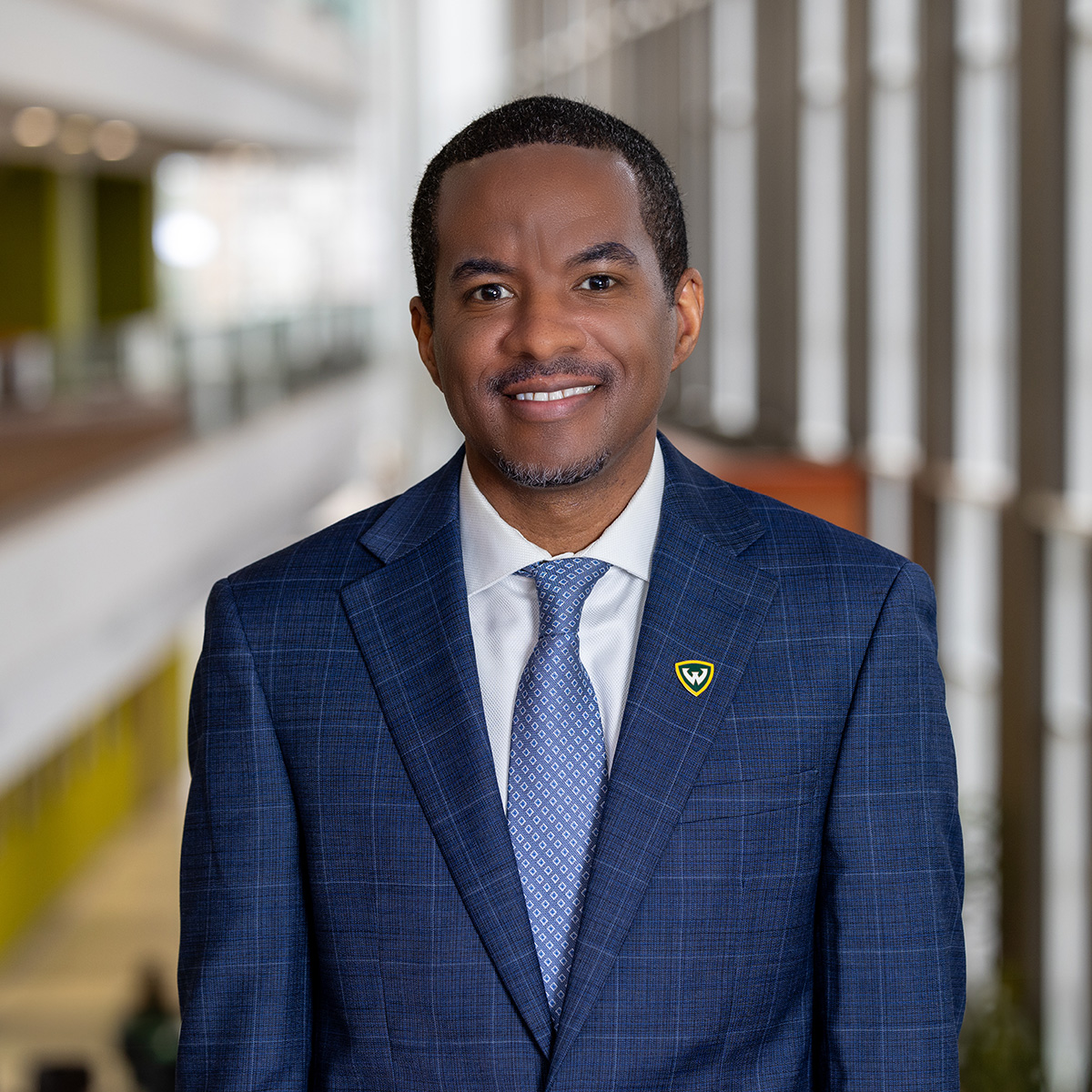Dr. Cynthera McNeill to lead interprofessional Geriatrics Workforce Enhancement Program project supported by $5M Health Resources and Services Administration grant

Wayne State University has been awarded a five-year, $5 million grant from the U.S. Health Resources and Services Administration to implement an interprofessional Geriatrics Workforce Enhancement Program project through collaboration among six Wayne State schools and colleges, the WSU Institute of Gerontology, and eight community health care organizations.

The project, Applied Gerontology Research and Education to Eliminate Disparities (AGREED), will be led by College of Nursing Assistant Clinical Professor Cynthera McNeill, DNP, APRN, AGPCNP-C, FAANP, who will serve as the program director and grant evaluator.
The AGREED project encompasses the efforts and expertise of faculty and staff from the Wayne State College of Nursing, Eugene Applebaum College of Pharmacy and Health Sciences, School of Medicine, School of Social Work, College of Education, College of Engineering, and Institute of Gerontology. Its focus is to educate and train health care and supportive care workforces to care for older adults by collaborating with community partners, and to maximize patient and family engagement to address care gaps and improve health outcomes for older adults by integrating geriatrics with primary care and other appropriate specialties.
“In parts of Wayne County, including Detroit, older adults are dying at twice the rate of those who live elsewhere in Michigan,” McNeill explained. “Disparities in social determinants of health, which include access to health care, are major contributing factors to poor health outcomes. This multidisciplinary project brings together leading experts across our university, who will engage directly with our community to address those disparities and make a sustainable, generational difference to improve the health of this population.”

“I am thrilled that the College of Nursing will play a leading role in this critically important work to reshape health care for older adults in our community and our state,” said College of Nursing Dean Ramona Benkert, Ph.D., ANP-BC, FAANP. “We are well positioned to drive these efforts, with a mission rooted in empowering health for our urban communities and Dr. McNeill’s internationally renowned expertise in urban health and health disparities. Through collaboration with our skilled colleagues across the university, I believe this project will help create a new standard for geriatric care and education.”
Over a five-year period, the project aims to:
- Improve geriatric care within eight community health care organizations through quality improvement, education and skills training related to aging, including Alzheimer’s Disease and Related Dementias (ADRD). Partner organizations include:
- Rosa Parks Geriatric Center for Primary Care
- Health Centers Detroit Foundation
- Detroit Recovery Project: Integrated Primary Medical and Behavioral Healthcare
- Hartford Skilled Nursing Home
- Arab Community Center for Economic and Social Services
- Moving Forward: Nursing Home Quality Coalition in Michigan
- Longevity Health Plan of Michigan
- Detroit Area Agency on Aging
- Alzheimer’s Association of Michigan
- Train 100 direct care workers and support staff annually to improve skills and knowledge for caring for geriatrics, including ADRD.
- Create a career ladder with the development of a geriatric specialist certification for direct care and community health workers.
- Implement interprofessional training for the future geriatric workforce, which will include enhancing the geriatric curriculum and clinical experiences for 15 graduate students in nursing, medicine, pharmacy and social work in addition to 1,000 students through interprofessional team visits each year.
- Create the Remember My Elder mobile app for providers, direct care workers, caregivers and an aging population that would increase access to aging and ADRD resources in Southeast Michigan, decrease silos of information and provide closed loop referral tracking to resources for the aging community.
- Create a Geriatric Workforce pipeline connecting interprofessional trainees with job opportunities within partner organizations and other primary care delivery systems serving the aging populations.
- Enhance the geriatric curriculum in undergraduate nursing and provide 20 undergraduate nursing students with longitudinal clinical experiences in nursing homes each year, with the intent of encouraging nursing students to work in nursing homes after graduation.

“I am pleased to see Wayne State has received this important funding from HRSA, which will bring together faculty from all corners of our campus and community health care organizations to address critical care gaps in our elderly population,” said Ezemenari M. Obasi, Ph.D., vice president for research at Wayne State University. “This project is an excellent example of how our research is playing a vital role in the health of Detroiters and beyond.”
The multidimensional scope of work on the AGREED project involves contributions from numerous Wayne State faculty researchers and staff members, including:
- Pragnesh Patel, M.D., F.A.C.P., who serves as a co-leader to expand interprofessional education initiatives in the School of Medicine’s geriatric fellows' program.
- Faith Hopp, M.S.W., Ph.D., who serves as a co-leader to expand interprofessional initiatives for students at the School of Social Work.
- Candice Garwood, Pharm.D., FCCP, BCPS, BCACP, as a co-leader for PharmD; Diane Adamo, Ph.D., M.S., OTR, as co-leader for physical therapy and occupational therapy; and Aline Saad, PharmD, as the interprofessional curriculum coordinator for the project.
- Nate McCaughtry, Ph.D. and Jeanne Barcelona, Ph.D., who serve as co-investigators to create a geriatric specialist certification for certified nursing assistants, community health workers, and medical assistants; offer training to members of the health and direct care workforce through the College of Education’s Community Health Worker Academy; and assist health professional training programs to become registered apprenticeship programs with the United States Department of Labor.
- Donna McDonald as a co-investigator to provide training to health professionals on topics including Alzheimer's disease, aging syndromes and the latest research on dementia care.
- Dongxiao Zhu, Ph.D., and a team from the College of Engineering will lead development and maintenance of the Remember My Elder mobile app for caregivers and members of the health and supportive care workforce.
This project is supported by the Health Resources and Services Administration (HRSA) of the U.S. Department of Health and Human Services (HHS) as part of an award totaling $5 million with 0% financed with non-governmental sources. The contents are those of the author(s) and do not necessarily represent the official views of, nor an endorsement, by HRSA, HHS, or the U.S. Government. For more information, please visit HRSA.gov.
About the Wayne State University College of Nursing
Recognized as a leader in nursing education, knowledge generation and contemporary nursing practice, the Wayne State University College of Nursing has been dedicated to providing the highest quality education to a diverse population of students for more than 75 years. Through our BSN, MSN, PhD, DNP and graduate certificate programs, Wayne State nursing graduates are prepared to be leaders in research, education and practice, with an enhanced focus on addressing health disparities and the health care needs of urban populations. U.S. News and World Report has recognized the WSU College of Nursing for offering BSN, MSN and DNP programs that are ranked among the best in the country.